France, Germany mull over independent financing system to sidestep US bans
France and Germany are seeking to develop an independent European financing mechanism with the aim of sidestepping US sanctions against countries, including Iran, and asserting the continent’s “sovereignty.”
Speaking at a meeting with press association AJEF on Monday, French Finance Minister Bruno Le Maire said Paris and Berlin are making joint efforts to develop either a European or a Franco-German financing system.
“With Germany, we are determined to work on an independent European or Franco-German financing tool which would allow us to avoid being the collateral victims of US extraterritorial sanctions,” he said. “I want Europe to be a sovereign continent not a vassal, and that means having totally independent financing instruments that do not today exist.”
Le Maire also noted that the French and German governments had been holding talks with their respective central banks regarding the issue.
“If we want to build a truly independent instrument, we must open up all the options,” he pointed out.

Echoing Le Maire’s stance, German Foreign Minister Heiko Maas said work had already begun on creating a European payment system independent of the SWIFT global payment network.
In an address to the German ambassadors’ conference in Berlin on Monday, he warned that Washington’s sanctions against Iran, China, Russia and Turkey would damage European businesses.
“We must increase Europe’s autonomy and sovereignty in trade, economic and financial policies,” Mass said. “It will not be easy, but we have already begun to do it.”
In an interview with Germany’s Deutsche Welle, Christopher Bovis, professor of international business law at the University of Hull in the UK, said the planned financing system “will allow Iran to interface with European financial systems, European clearing systems, using the nominations supported and created by the European Investment Bank based on the euro.”
The comments come as Paris and Berlin – both signatories to the 2015 Iran nuclear deal – have been struggling along with the entire European Union to save the landmark pact after the US unilaterally withdrew and re-imposed its sanctions against Iran.
Tehran has said it will only stay in the deal if the remaining parties provide it with “practical strides” that it could continue to reap the economic benefits of the deal despite Washington’s pullout. Iran wants European guarantees for the sale of its oil as well as for continued banking relations.
Washington’s withdrawal from the Iran deal and the ensuing re-imposition of bans has put the US at loggerheads with its European allies, who have vowed to protect their business ties with Tehran and keep the nuclear pact alive.
The EU’s stance has infuriated the US, with National Security Adviser John Bolton saying the Europeans have to make a choice between Washington and Tehran in observing the American sanctions.
Earlier this month, President Donald Trump signed an executive order, re-imposing the first round of sanctions on Iran which target the country’s purchase of US dollars, trade in gold and other precious metals as well as the automotive and aviation sectors.
In November, a second round of US sanctions will be reinstated, targeting Iran’s oil industry, the Central Bank, port operators, and the energy and shipping sectors.
Meanwhile, the European Union is scrambling to finalize an economic package aimed at satisfying Iran and keeping the deal.
The EU has already taken a series of measures in support of the nuclear agreement.
Last week, it allocated 18 million euros to development projects in Iran as part of a broader package of 50 million euros earmarked for the country in the EU budget.
On August 6 -- when the first batch of US bans snapped back in place -- the EU activated an updated version of its Blocking Statute, which prohibits European companies from complying with US sanctions on Iran.
The bloc has also warned that it could impose its own sanctions against companies that stop doing business with Iran in compliance with US bans.
Explainer: Jam-e Jam 1 – Iran’s giant leap into geostationary orbit and a new broadcasting era
Iran says entered talks with US with 'result-oriented approach'
Iran FM, IAEA chief meet ahead of indirect talks with US
Israeli soldier admits to murder, rape in Gaza during live stream
VIDEO | Pakistan protesters condemn US-Israel threats, mourn mosque victims
VIDEO | Press TV's news headlines
Tehran slams US ‘inhumane’ sanctions against Cuba
Two Palestinian children killed in PA ambush; Hamas slams attack as ‘black mark’


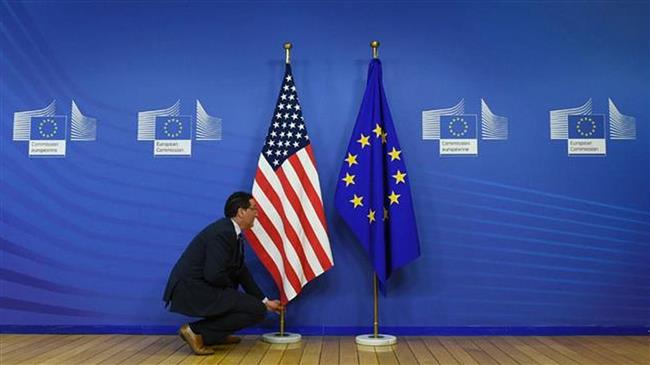


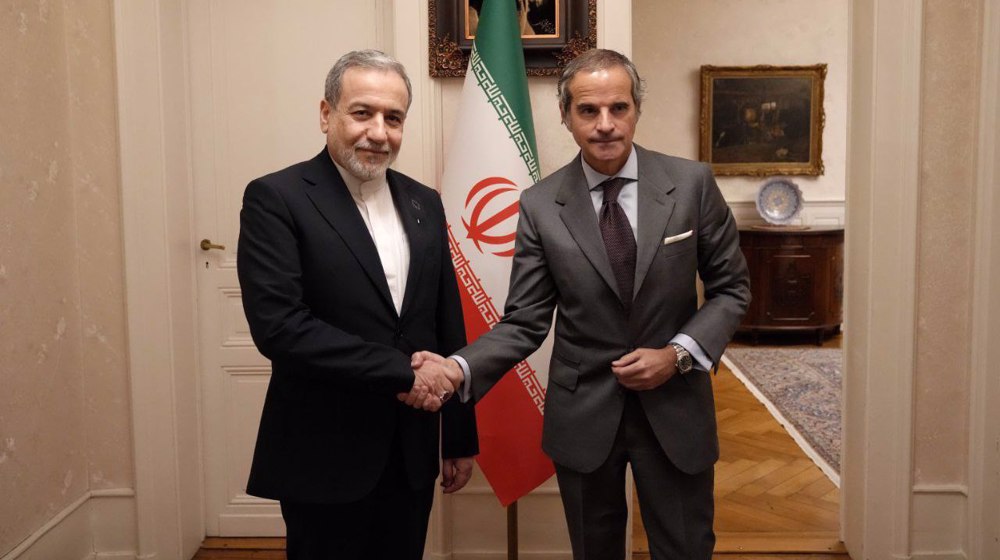
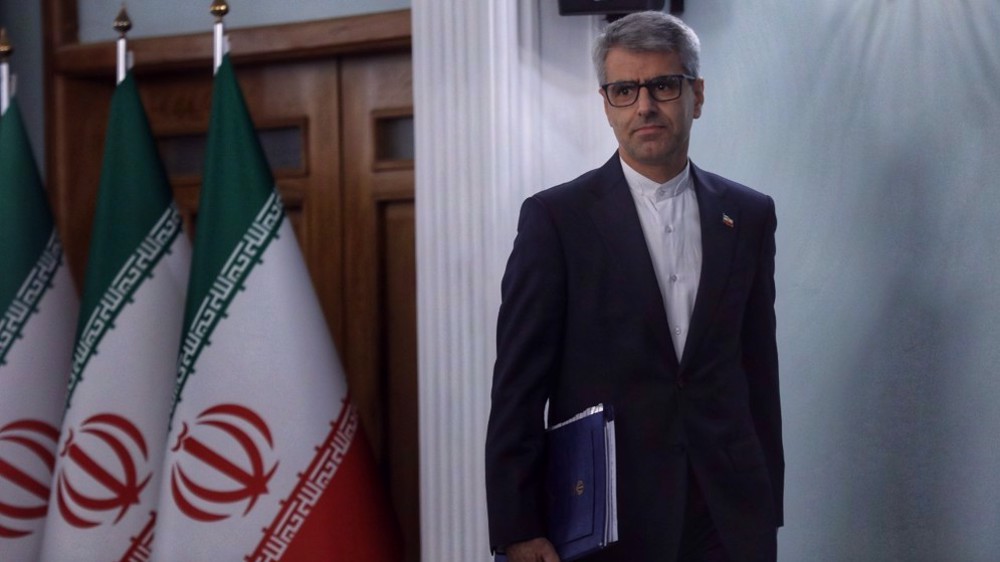
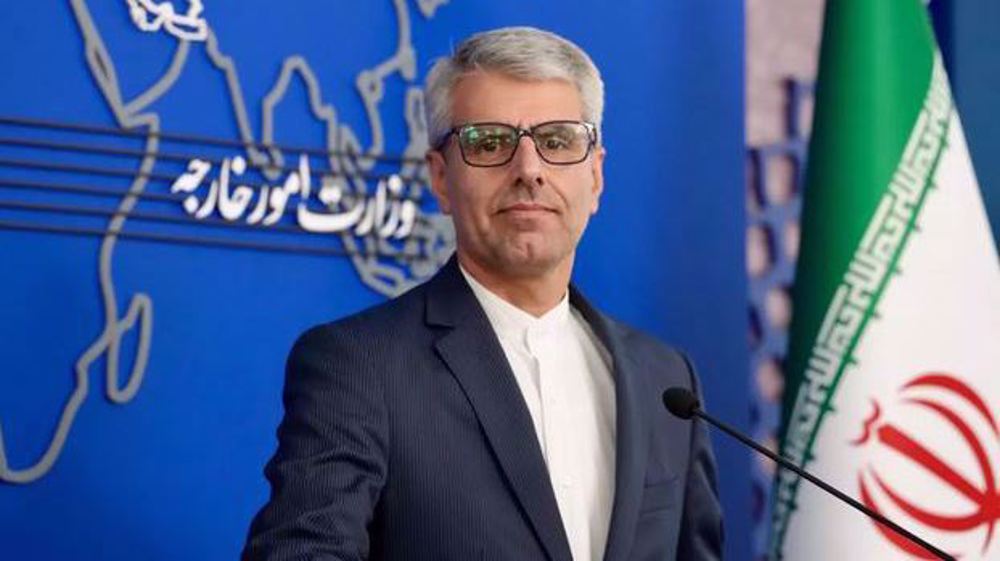







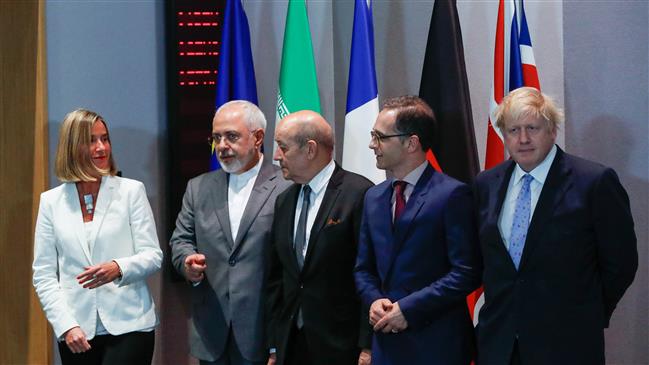

 This makes it easy to access the Press TV website
This makes it easy to access the Press TV website